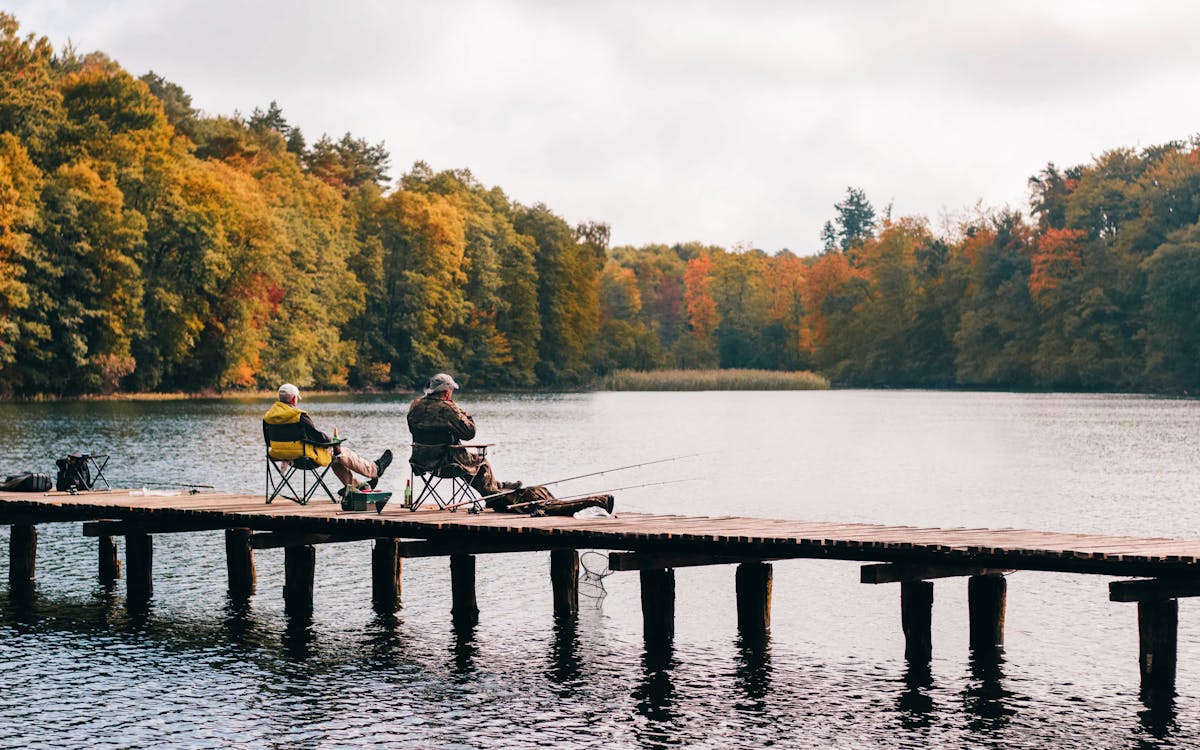To an outsider, fishing might seem like a simple sport: head out to the boat or dock, cast a line, and wait for the catch. Yet when anglers make the leap to tournament fishing, things can become a bit more complicated. Our comprehensive coverage of competitive fishing will give you the knowledge and confidence to take your angling to the next level.

Types of Fishing Tournaments
In a fishing tournament, anglers typically compete for cash prizes based on the weight or length of a predetermined fish species. As an angler, you’re most likely to encounter these types of fishing tournaments:
1. Immediate Release or Catch-Photo-Release
Catch-photo-release fishing tournaments are increasingly common, especially for anglers fishing from kayaks. Fish are caught, quickly measured and/or weighed, and photographed before being unhooked and released to the water. This technique requires a measuring board or on-board weigh scale to record the weight or length of the fish before returning it to the water.
2. Catch-Hold-Release
In this type of fishing tournament, fish are caught and transported to an onshore weighing or measuring station; afterwards, they are released back into the water, but often not in the area where they were caught. When looking for a fishing tournament near you, note that catch-photo-release is increasingly preferred to catch-hold-release. By releasing fish immediately, anglers help minimize stress on fish and keep them in their own “backyards."

3. Tag and Release
Anglers attach a tag to their fish that records information such as date, time, location, and fish species. This information is typically submitted to local fisheries and/or conservation organizations.
- In this type of fishing tournament, it’s crucial to have a designated video camera operator to document your catch and clearly record the date and time with GPS. Above all, don’t zoom in! The videographer needs to capture all of the action to provide clear proof of the catch to the tournament designator.
- When anglers learn to tag properly, tag and release tournaments support marine conservation by helping scientists collect information about fish migration, movement, and marine life cycles.
What is the best fishing tournament near me?
The answer: it depends! To determine the best fishing tournament for you, consider the following:
- The fish species you hope to catch
- Note that fishing tournaments also consider the best species to catch based on the predator/ prey balance in the water where anglers compete.
- In general, larger fishing tournaments limit participants to a single fish species or family. Localized and/or amateur fishing tournaments may allow a wider selection of fish species: the Mid-Atlantic 500 in Cape May, for instance, offers a range of optional jackpots and categories including heaviest white marlin, blue marlin, tuna, dolphin, and wahoo.
- Your skill level and/or the overall experience of your crew
- If you’re new to the fishing tournament scene, you may be able to squeeze onto a pre-existing team based on your skill alone. Excellent anglers can make a huge difference simply by knowing how to properly execute a range of fishing strikes, as well as accurately pitching dead bait to feeding fish.
- Your personality as an angler
- Are you an introverted fisherman who prefers boating alone on quiet waters, or do you dream of long hours on the boat spent socializing and competing with fellow anglers?
- Regardless of your answer, the world of fishing tournaments offers something for everyone. Land-based or inshore fishing competitions typically invite individuals to compete, while larger teams may be necessary to pursue offshore fish.

How Long do Fishing Tournaments Last?
Fishing tournaments can last many hours over the span of several days. Bass tournaments are typically 8 hours long, accounting for time spent fishing as well as traveling to various fishing sites. Depending on the time of year and the type of fish, expect to begin at the crack of dawn and spend the day in pursuit of your catch, totaling anywhere from 6 to 10 hours. Some of the largest U.S. fishing tournaments, such as the Big Rock Blue Marlin Tournament in Morehead City, NC, offer more than a week of activities and daily weigh-ins. At the other end of the scale, kids’ fishing tournaments tend to be shorter (and cheaper!) to help young anglers ease into the sport of competitive fishing.
Fishing Competition Prize Money
After you decide whether you’re going solo or with a crew, it’s time to pay the tournament entry fee. Most fishing tournaments require a substantial entry fee for competitors, and it may vary depending on whether you register as a boater or “non-boater,” referring to an angler who fishes off of someone else’s boat. Depending on your skill and luck, the cost to enter a fishing tournament could be covered by a big win: most tournaments offer hefty cash prizes to the top three finishers, as well as a bonus for the largest fish of the tournament.
Newcomers to tournament fishing may be unfamiliar with the calcutta: the side pot with which the “big money” is won in fishing tournaments. To avoid any drama, it’s highly recommended that teams discuss how the calcutta will be distributed before the tournament. Some teams may grant the captain a higher percentage of the calcutta than the mates. The check is typically written to the boat and most often the owner, who's not always responsible for catching the winning fish.

On any team, anglers are typically expected to help cover the financial and physical costs of tournament fishing, whether by paying for a portion of fuel money, offering to drive the boat at night, or purchasing food for the crew. If you’re solo, still make sure that you’re financially and physically prepared for the competition.
How to Prepare for a Fishing Tournament
Once you’ve determined the type of fishing tournament that’s best for you, it’s time to plan for the big day.
1. Prepare your boat.
If you’re not fishing from the land, make sure you have the proper boat safety equipment. Seasoned tournament anglers typically have massive engines to boat to their favorite fishing spots in record time - but provided you have a functional boat and a list of priority spots in mind, you’ll be ready to compete with the pros.
2. Scout the tournament location - and familiarize yourself with tournament rules.
Study the rules of the fishing tournament, as well as depth charts and fish patterns in the competition waters. While hiccups are inevitable, this knowledge can help you avoid unwanted surprises on the first day of a fishing competition.
3. Get your bait and fishing gear!
In most fishing tournaments, time is a finite resource. Fast-moving lures such as buzzbaits or rattling crankbaits are best for aggressive fish, while slower lures like jigs and worms are preferred for slower, midday fish movement. In addition to lures, make sure you’re properly outfitted for the big day with offshore fishing apparel or custom boat gear for the entire crew.
4. Prepare your team.
Practicing and scouting a tournament fishing location as a team will increase your crew’s mobility and overall chances of winning it big. Depending on regional and tournament rules, double check that all crewmembers have a valid state fishing license and important boat documents.
It takes time and patience for amateur anglers to rise to the top ranks of any fishing tournament. With these tips in your toolkit, a dedicated crew, and a clear goal in mind, you might find yourself among the top finishers.



